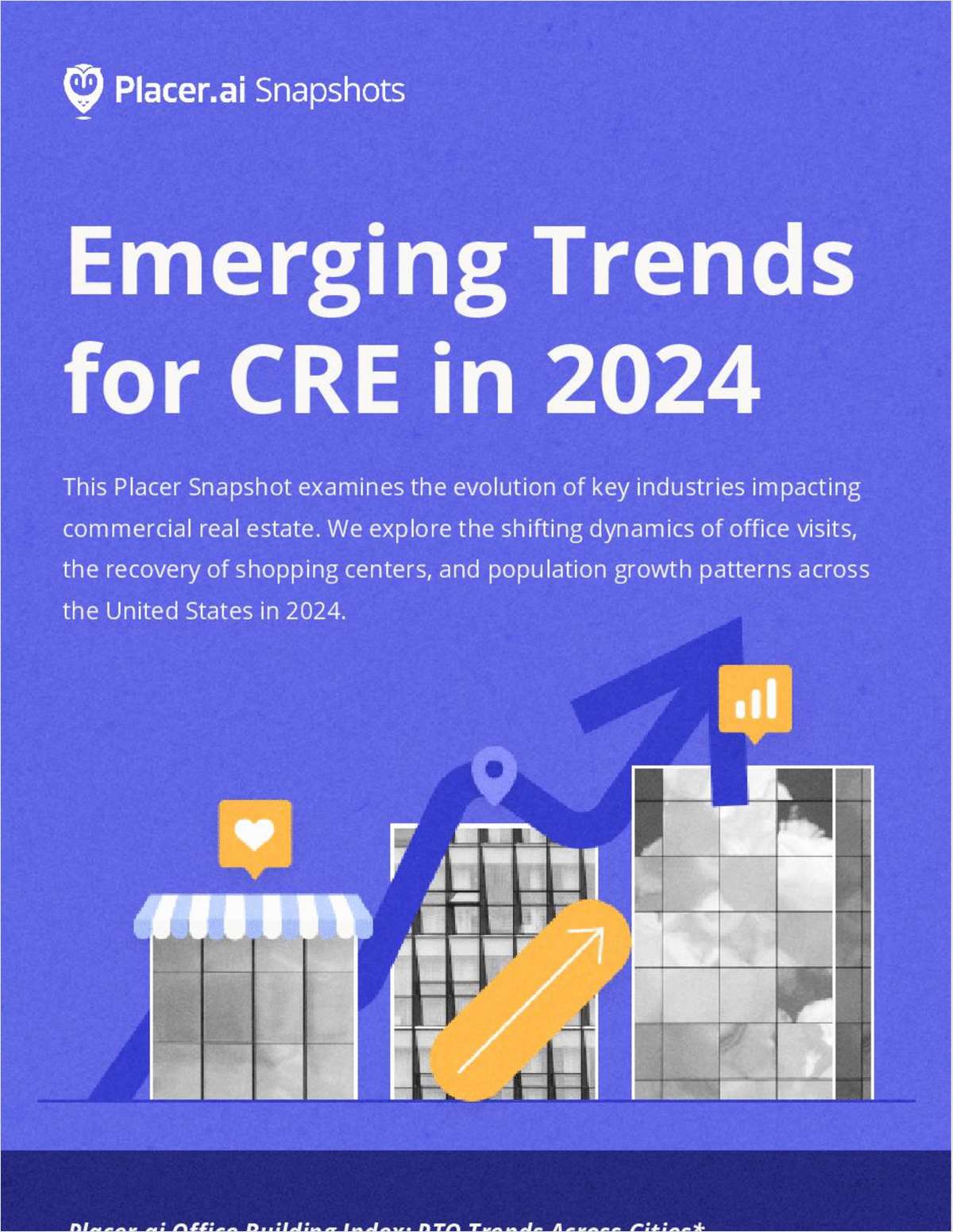(To read more on the multifamily market, click here.)
SAN FRANCISCO-The end of the cap rate decline may be here or near for the apartment sector. Dan O'Connor, managing director of global forecasting and research for Global Real Analytics, publishers of the National Real Estate Index, tells GlobeSt.com that while demand for class A assets across most property types continues, the record high prices being paid for apartment properties is becoming a thing of the past.
"Two forces are at work; there will be less demand going forward for condo conversion properties as it is pretty clear the owner-occupied housing market has cooled in many regions, and apartment fundamentals are getting better," says O'Connor. "As a result, there will be fewer ridiculously low cap rates being paid for convertible apartment properties, while apartments will continue to perform well for the reason they should, better operating fundamentals."
The early returns on the Rent Monitor report for the second quarter, which will be released this month, show "very healthy increases" in apartment rents, says O'Connor. GRA's Value Monitor report for the second quarter, which is expected to back up his speculation with regard to multifamily cap rates, won't be out until early August. "I don't expect to see a 100 basis point jump [in apartment cap rates] in one quarter, but I expect to see that they have plateaued and maybe nudged higher," he says.
The first quarter Value Monitor report showed surging prices and double-digit appreciation for most property types. The apartment sector led all property types in the first quarter with a 12.9% annual price appreciation for the class A category and a brisk 12.4% for the class B category. Retail and CBD office properties also posted double-digit gains, while the perceived laggards--warehouse and suburban office--posted increases of 9.2% and 7.1%, respectively.
"With the Pacific/Southwest, Florida and the Mid Atlantic regions the pacesetters, the seemingly inexorable increase in class A property values does not appear to have run its course," says O'Connor.
The Florida/Gulf Coast region posted a 12.7% increase while the Pacific/Southwest had an annual composite price increase of 12.4%. The lagging regions for several consecutive periods have been the central part of the nation, where many metropolitan areas are suffering due to a waning manufacturing based economy.
One of the hottest markets in the nation continues to be West Palm Beach. The market placed in the top five in four of six property categories with annual price increases of more than 23% in class A apartments and suburban office and better than 30% appreciation in class B apartments and class A CBD office.
Other markets with property sectors showing impressive price appreciation include Tampa-St. Petersburg for class A apartments (+31%), Jacksonville for warehouse (+24.6), Honolulu for retail (27.8%), and Philadelphia for CBD office (24.8%).
Continue Reading for Free
Register and gain access to:
- Breaking commercial real estate news and analysis, on-site and via our newsletters and custom alerts
- Educational webcasts, white papers, and ebooks from industry thought leaders
- Critical coverage of the property casualty insurance and financial advisory markets on our other ALM sites, PropertyCasualty360 and ThinkAdvisor
Already have an account? Sign In Now
© 2024 ALM Global, LLC, All Rights Reserved. Request academic re-use from www.copyright.com. All other uses, submit a request to [email protected]. For more information visit Asset & Logo Licensing.








